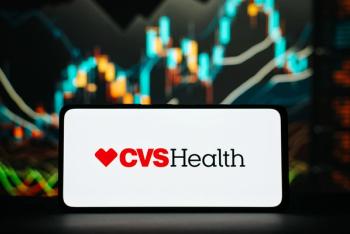
Complement Patient Care With Vitamins and Supplements
Vitamins and supplements provide clinical benefits to patients—while boosting the pharmacy’s bottom line.
Josh Rimany, RPh, FACA, IFMCP, founder and chief wellness officer at Dilworth Drug and Wellness Center in Charlotte, North Carolina, uses his background in nutrition as a catalyst for functional medicine. Rimany sat down with Drug Topics® to discuss vitamins and supplements, diving into the ways that pharmacists can use supplements and nutraceuticals as a tool to both improve clinical outcomes and benefit business.
This interview has been edited for length and clarity.
Drug Topics®: Can you share your thoughts on the benefits of vitamins and supplements?
Rimany: I believe that the terminology “supplement” is to supplement…your diet. [It’s] what people take because they’re not getting enough nutrition in their world. I really think that the benefits of clinical nutrition are from an outcomes-based process. So looking at using supplementation with nutraceuticals or using them as a tool for clinical outcomes; using it for things like pain, blood pressure, sleep, [and] mood…really does benefit the patient and the pharmacy.
Synergy with medications—looking at drug nutrient depletion—is big for pharmacy. If we’re teaching our patients about the side effects of drugs, why are we not teaching them about the depletion of nutrients because of those drugs? A big step for pharmacy is getting in front of that piece of, “You take this medicine; you need these nutrients.”
The other angle I look at it is, can I give synergy to the chronic conditions that we’re treating? So blood pressure, mood, stress, sleep, pain, inflammation—anything we’re taking medicine for is generally for a chronic, and sometimes acute, condition. And I think there’s plenty of things we can offer our patients for value in the supplemental world to help give them synergy.
Drug Topics®: Are there any specific vitamins or supplements that patients can take to help get through cold and flu season?
Rimany: For cold and flu season, [the goal] is bolstering immune response. This has been really big because of COVID-19. When we’re talking flu, we’re also talking COVID-19. Utilizing outcomes-based nutrition—so things that are clinically shown to help reduce viral load—is really important in that.
We can use things like zinc, vitamin C, [and] magnesium, as well as vitamin D and glutathione to help boost the immune system. Using [these supplements] from the standpoint of immune responses, do we want to activate the immune system and go on an offensive attack? In other words, [are we] grabbing the cold and flu and getting rid of it faster, or are we doing it in a preventive way in order to bolster the immune system and get it ready?
Drug Topics®: How can pharmacists use vitamins and supplements to grow their businesses?
Rimany: From the patient perspective, they get better outcomes than just prescriptions alone—and it helps grow the business. If you could profit a few hundred thousand dollars, that’s going to offset what we’re seeing on the pharmacy side and help diversify off the PBM [pharmacy benefit manager] billing. That’s really what the focus is. That’s why I’m on the Developing Opportunities Committee for NCPA [the National Community Pharmacists Association]; I’m fortunate enough to be able to help, on a larger scale, our pharmacies diversify their billing.
[Prescription] drugs are important, but they’re not paying the bills and they’re not helping our patients just by themselves. If we can move the needle on that, it would be awesome.
Drug Topics®: Since vitamins and supplements are not FDA approved, how can pharmacists ensure that patients are using products from reputable sources?
Rimany: They’re not FDA approved but that doesn’t mean that they’ve not been shown clinically [to help]. We have to look in different places like [the] Natural Medicines database [and]…for different resources [that] have shown that [these products] can help.
I always take a blend of what’s in the science, what I see in practice in the clinic, and what intuition tells me. It’s not just, we’re taking it because we think it’s good for you, or we Googled it on the internet. That’s why I call it clinical nutrition or nutraceuticals; there are many reputable sources on how to find information about these products. There is clinical data on supplementation and vitamins and utilizing those resources is really important.
Drug Topics®: Are there any commonly prescribed medications that have contraindications for use with vitamins and supplements?
Rimany: Potential drug interactions [are available] on databases. We can also intuitively tell our patients, based on the science, or based in what we’ve seen, that these are the things we may or may not want to use. Making sure that we’re getting [these products] from the right sources that are [Good Manufacturing Practice] manufactured and making sure they’re professional grade only…is really important, because we really want to look at using them just like a prescription.
Drug Topics®: What role can pharmacists play in public disinformation surrounding supplements?
Rimany: Pharmacists always can play a role in [addressing] disinformation because we’re health care providers. Educating ourselves, through postgrad studies [and] webinars to get better at understanding clinical nutrition [and] functional medicine, the perspective of integrative health—what can we do to help with diet, exercise, nutrition, mental health, clarity, emotional health, emotional well-being—that’s really important.
Not all supplements are created equal. Just because it says vitamin C on the bottle…[since] it’s not regulated, it means that we need to pick the right process, the right products, [and] partner with the right people, which is why I think professional grade is extremely important.
Drug Topics®: Are there any final key takeaways you’d like to share?
Rimany: Trusting others who have done it well, rather than trying to do it on your own, is important. Getting a group together in this space is important to me because people have been doing this for years. But we need to get pharmacists on board to take control of the clinical side of supplementation. I don’t think there’s any health care provider that’s owned this space. We have companies out there [selling supplements], and there is no health care provider at the helm.
Newsletter
Pharmacy practice is always changing. Stay ahead of the curve with the Drug Topics newsletter and get the latest drug information, industry trends, and patient care tips.























